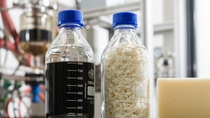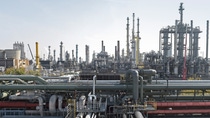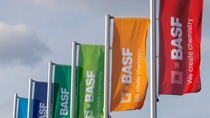At BASF, we are continuously looking at ways to reuse and re-enter waste into product lifecycles and to foster circular economy solutions. With the circular economy concept, BASF aims to decouple economic growth from the use of finite resources and is accelerating the adoption of these principles into our day-to-day operations. BASF is developing a process to chemically recycle polyurethane soft foam from old mattresses to virgin-quality raw materials our partners to create new foams and mattresses thereof.
For this purpose, a cross-disciplinary research team with enthusiastic scientists, technicians and business experts at Lemfoerde, Schwarzheide and Ludwigshafen are is deeply involved. In the meantime, the precursors obtained from old mattresses can now be used to produce new mattress-size flexible polyurethane foam blocks. The new process is now being further improved and tested on a larger scales. By taking this step, BASF is breaking new ground and responding to the raised expectations of the foam and mattress industry as well as those of consumers. “As we continue to move forward towards a circular economy, BASF is contributing new technologies and extensive know-how to finding solutions for a sustainable future” comments Christopher Metz, Business Management Isocyanates Europe.


